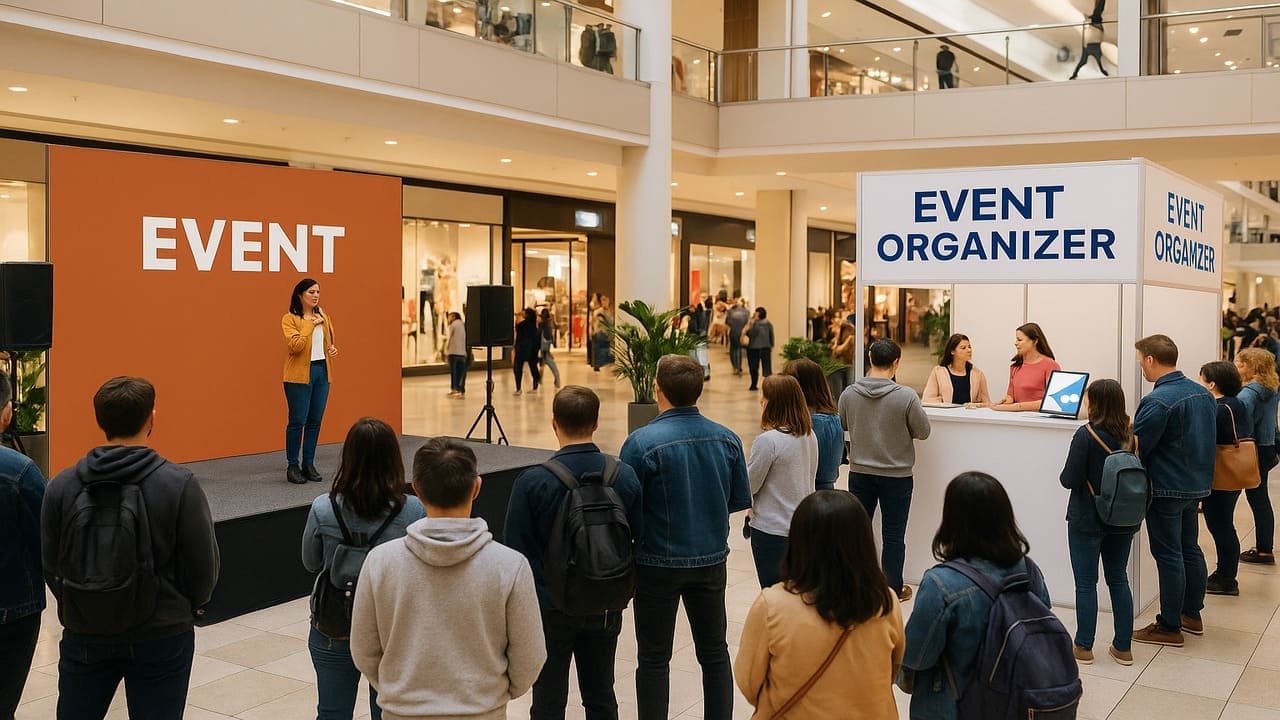
The Berkshire Mall – In an era where online shopping continues to dominate, brick-and-mortar malls face increasing pressure to stay relevant. But in the heart of this retail evolution, one industry has stepped up to bridge the gap between physical space and customer engagement Event Organizers. These professionals are no longer just party planners or stage managers they’re experience architects transforming ordinary retail centers into vibrant community destinations.
Gone are the days when people visited malls solely to shop. Today’s mallgoers seek more: they want entertainment, interaction, and inspiration. This shift has prompted mall management to look beyond traditional marketing tactics and embrace experiential strategies, with event organizers leading the charge.
Whether it’s a weekend food bazaar, a seasonal fashion show, or a children’s art workshop, events infuse life into shopping centers. They create foot traffic, lengthen visitor stay, and build emotional connections with the space. More importantly, well-curated events turn passive visitors into active participants, driving both retail interest and brand loyalty.
Also Read : Home Bakery Business: Turning Ovens into Opportunities in The Berkshire Mall
An event organizer specializing in mall activations plays a multifaceted role. Their responsibilities typically include:
But beyond the checklist, successful organizers understand the psychology of retail spaces. They design activations that are not only crowd-pleasers, but also strategic drivers of commercial value placing events near underperforming tenants or syncing activities with seasonal campaigns.
Not all events are created equal. For malls, the most successful activations are those that combine accessibility, entertainment, and commercial integration. Some popular formats include:
These experiences don’t just draw people in they encourage them to stay longer, visit new zones within the mall, and share their experiences online, creating organic digital marketing.
Read More : Child Accounts on Instagram Will Be Safer, Here’s What Meta Is Doing
The misconception that mall events are a cost center is quickly fading. When executed well, event organizing becomes a revenue stream. Organizers can monetize events through:
Furthermore, event impact can be measured beyond immediate sales. Foot traffic analytics, social media mentions, and tenant feedback help calculate return on engagement, which is just as valuable in building long-term loyalty.
As more malls recognize the value of curated experiences, event organizer (EO) businesses have a golden opportunity to scale. Growth strategies include:
Moreover, EO firms can partner directly with retail brands and food chains within the mall to create exclusive promotions that merge the event atmosphere with direct product sales.
The modern mall is no longer just a place to buy things it’s a space to live, gather, and explore. Event organizers play a key role in driving that transformation. By blending creativity, logistics, and commercial understanding, they breathe new life into aging malls and elevate new ones into lifestyle destinations.
The future of event organizing in the mall sector lies in constant adaptation. As customer expectations evolve, so too must the experiences crafted for them. From sustainable markets to virtual-integrated shows, the next era of mall events will demand not just organization, but vision.
For those in the EO business, the message is clear: don’t just organize curate, innovate, and lead.